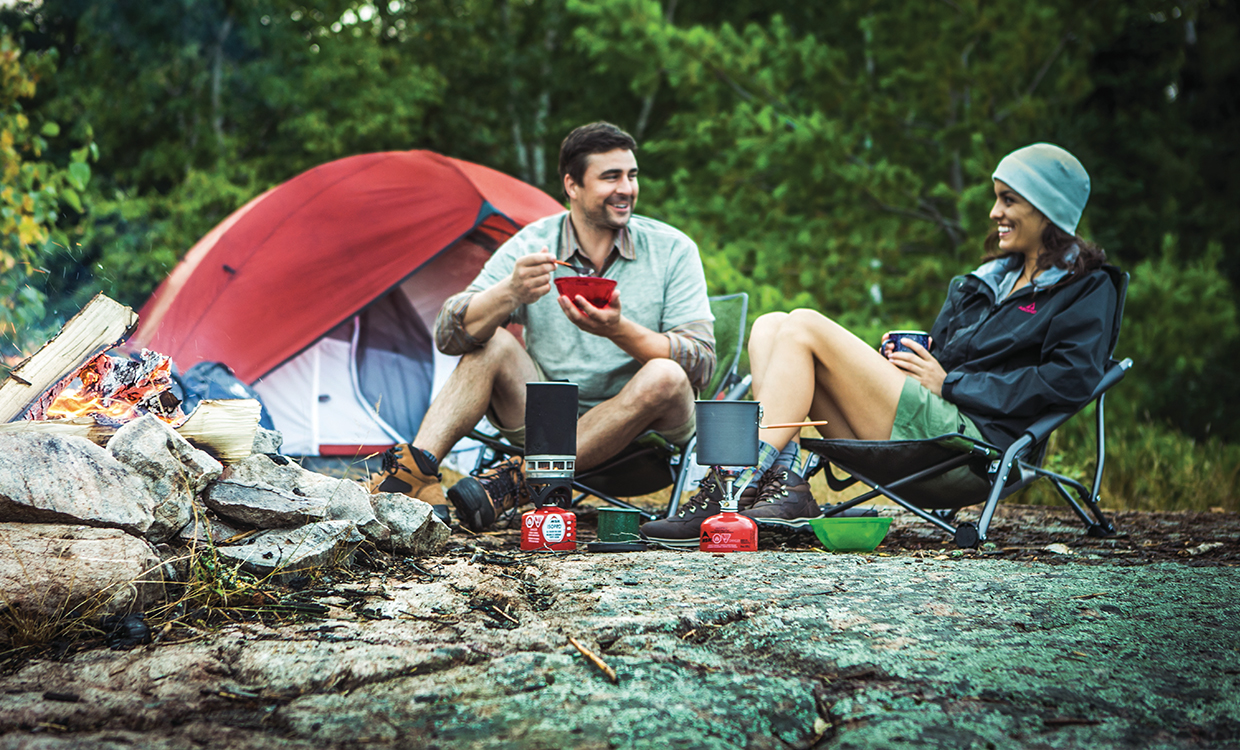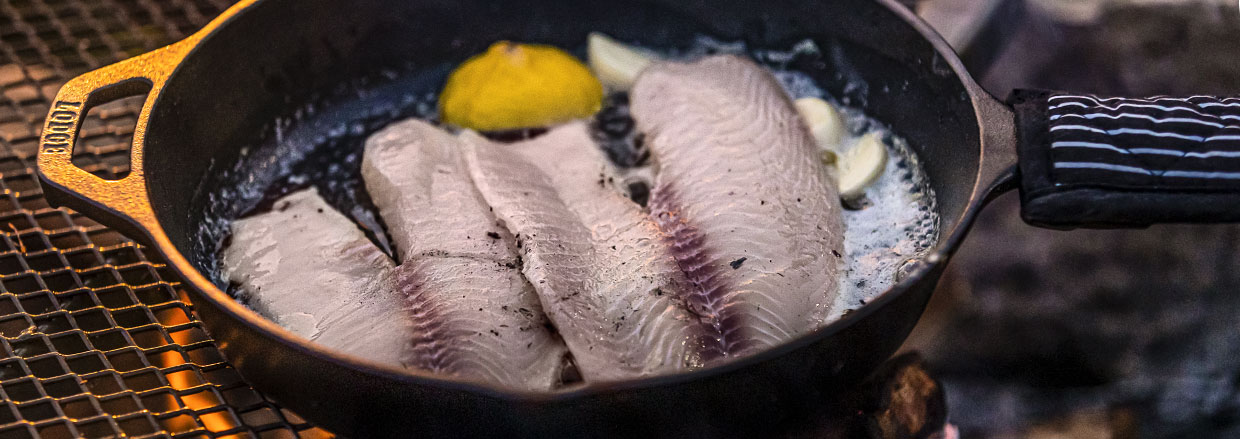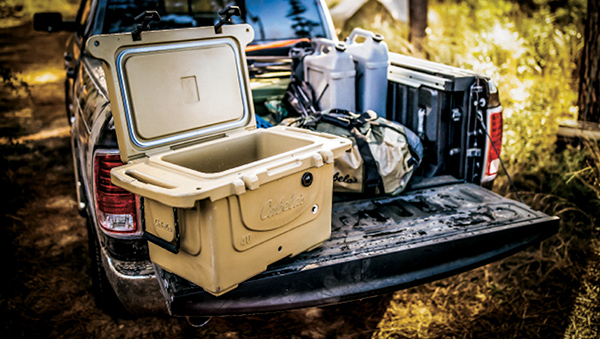Outdoor Cooking

Make Camping a Culinary Experience
It’s true what they say: Everything tastes better when you are camping. Whether you are frying up the catch of the day or simmering a crock pot of pork ‘n’ beans over the fire, the aroma of home-cooked grub around the campsite is guaranteed to get those taste buds dancing.

Tips for Your Camp Kitchen
1. Consider Portability
When it comes to choosing your stove, consider how long you will be carrying your equipment on foot. Take account of the weight of other items you bring along, (you might want to avoid anything heavy), and ideally opt for a camp stove with a carrying function.
2. Plan Ahead
Make a list of meals you will be making and ensure you have the right ingredients, storage, and utensils.
3. Remember to Pack Fuel
Don’t get stuck relying on the campfire to heat your dinner. Pack your propane and bring along a grill that suits your needs.
4. Invest in a Cooler
A good cooler will keep your meat spoiling or becoming soaked in melted ice part-way through your trip.
5. Bear Safety
Keeping bears away from your campsite starts with how you store and prepare your food. See our bear safety tips here.
Camp Cookware
When it comes to camping cookware, securing a good quality set will make all the difference.
- The first thing you need is a good set of cast iron pots and pans.
- If you are using a propane stove, you may also want to use an attachable grill-box or griddle.
- Dutch ovens are very popular camping accessories for slow-simmering soups, stews, or roasts.
- Other essentials include steel spatulas, tongs, wooden spoons, skewers, a can opener, folding knife, and heat-resistant gloves.
- Secure a set of durable camping plates, bowls, cups, and cutlery. Avoid bringing ceramic and glass.
Cast Iron Headquarters

Cast iron is every camper’s best friend. Thanks to its versatility, you can use cast iron to bake, sauté, fry, sear and more.
For generations, the cast iron cookware has remained popular in kitchens and around campfires, making it a go-to option for many. The cookware has some of the finest properties including heat retention & tolerance (even when used on a propane stove, charcoal, or a campfire), durability and sturdiness. Cast iron is tough and nearly indestructible, making it an easy choice for outdoor cooking.
Bass Pro Shops and Cabela’s Canada cast iron distributes even heat across the cooking surface, and with some TLC, your cast iron can last generations.
Here are expert tips and detailed guides on cast iron – including seasoning, cooking, storage, rust removal, reviving, and everything you can think of to help you make the best of your culinary adventures.
Camping Coolers
Invest in a high-quality cooler if you are packing meat, dairy, eggs, or other food that requires refrigeration. A key feature to look for is ice retention (the amount of time that a cooler can keep ice frozen).
- Outfitter coolers come with good ice-retention and bear-proofing technology to avoid unwanted visitors sniffing around your food.
- Coolers come in various sizes and weights. For hiking-in or portaging to your campsite, choose a lighter and more portable unit.
- If you plan on cooling what you catch, shoot or trap, you will require more space. Consider bringing multiple cookers to keep your fresh catch-of-the-day is not in the same cooler as dairy or other perishable products.
- Consider ice packs instead of traditional ice cubes to avoid a soggy mess at the end of the trip

